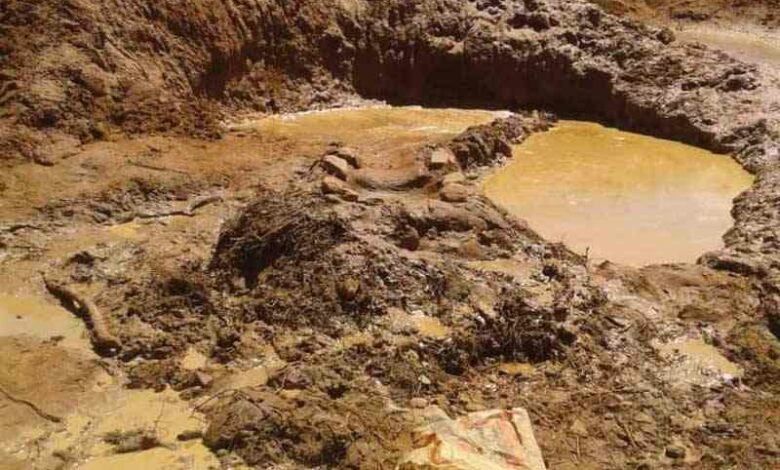The Bulawayo City Council (BCC) is grappling with persistent illegal gold panning in the city’s dam catchment areas.
This illegal activity has led to severe land degradation, negatively impacting the water flow into the city’s reservoirs, which are already strained during the dry season.
Despite efforts by the council to combat this problem, the lack of adequate resources and political interference continues to undermine their work.
However, rather than focusing on the problem alone, a comprehensive solution-oriented strategy could offer a way forward.
BCC Corporate Communications Manager, Nesisa Mpofu, said the scale of the catchment areas, far exceeds the capacity of the council’s existing workforce and equipment.
To address this, Mpofu proposed the recruitment of additional staff and the procurement of advanced technology, such as drones and all-terrain vehicles, to enhance surveillance efforts.
“Drones could allow rangers to monitor vast areas more efficiently, while all-terrain vehicles would make patrols more consistent and responsive,” Mpofu explained.
This would reduce the need for sporadic raids, making enforcement more regular and targeted.
While expanding resources is essential, legal frameworks must be strengthened to deter illegal gold panning.
Mpofu stressed the need for stricter policies that prevent illegal mining activities in environmentally sensitive areas. This includes advocating for the creation of environmental courts dedicated to prosecuting environmental crimes such as land degradation and water pollution caused by illegal mining.
Khumbulani Maphosa, coordinator of the Matabeleland Institute for Human Rights (MIHR), added that empowering local authorities with greater jurisdiction over environmental protection is crucial.
“Many of the catchment areas fall outside BCC’s direct control, so it’s essential to collaborate with neighbouring local authorities and ensure that the enforcement is consistent across all areas.”
Maphosa suggested that tackling this issue requires more than just law enforcement. A systems approach, considering the broader socio-economic factors driving illegal mining, is needed. A joint effort between councils, local communities, and the national government can create a more cohesive response.
One key element would be improving employment opportunities for individuals currently involved in illegal gold panning. By creating alternative livelihoods, the government can reduce the economic incentive for panning, thus lessening its impact on catchment areas.
Effort Dube from the Zimbabwe Environmental Law Association (ZELA) pointed out that corruption within enforcement ranks continues to be a stumbling block.
“Raids are often thwarted by tip-offs, suggesting that some council members or other authorities may be working in league with the illegal miners,” Dube said.
To address this, Dube advocated for internal investigations and stricter oversight of anti-panning operations. Reducing corruption could bolster public trust and ensure that raids and other enforcement measures are more effective.
Finally, education and awareness campaigns are integral to any long-term solution. Mpofu noted that many communities near the catchment areas may not be fully aware of the environmental damage caused by illegal mining. A focus on community-driven solutions, where locals are actively engaged in conservation efforts, can lead to sustainable change.
By equipping local communities with knowledge about the importance of protecting water resources and involving them in decision-making, BCC can foster a sense of ownership over the natural environment.
The problem of illegal gold panning in Bulawayo’s catchment areas requires a multi-faceted solution that integrates technology, legal reforms, and socio-economic development. By combining these efforts with better coordination between local authorities, stronger anti-corruption measures, and community involvement, Bulawayo can move towards safeguarding its critical water supply for future generations.

